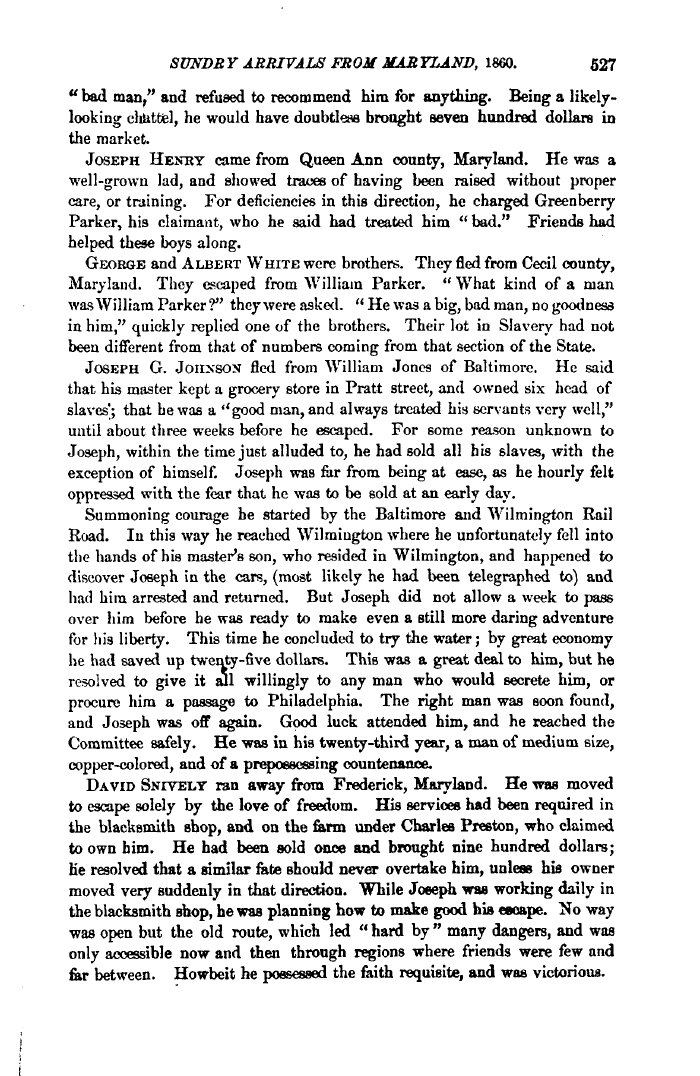 |
||||
 |
||||
| SUNDB Y ARRIVALS FROM MAR TLAND, 1860. 527 * bad man/' and refused to recommend him for anything. Being a likely-looking chuttel, he would have doubtless brought seven hundred dollars in the market. JOSEPH HEJTRY came from Queen Ann county, Maryland. He was a well-grown lad, and showed traces of having been raised without proper care, or training. For deficiencies in this direction, he charged Greenberry Parker, his claimant, who he said had treated him " bad." Friends had helped these boys along. GEORGE and ALBERT WHITE were brothers. They fled from Cecil county, Maryland. They escaped from William Parker. " What kind of a man was William Parker?" they were asked. " He was a big, bod man, no goodness in him," quickly replied one of the brothers. Their lot in Slavery had not been different from that of numbers coming from that section of the State. JOSEPH G. Jonxsos fled from William Jones of Baltimore. He said that his master kept a grocery store in Pratt street, and owned six head of slaves'; that be was a ''good man, and always treated his servants very well," until about three weeks before he escaped. For some reason unknown to Joseph, within the time just alluded to, he had sold all his slaves, with the exception of himself. Joseph was far from being at ease, as he hourly felt oppressed with the fear that he was to be sold at an early day. Summoning courage he started by the Baltimore and Wilmington Rail Road. In this way he reached Wilmiugton where he unfortunately fell into the hands of his master's son, who resided in Wilmington, and happened to discover Joseph in the cars, (most likely he had been telegraphed to) and had him arrested and returned. But Joseph did not allow a week to pass over him before he was ready to make even a still more daring adventure for his liberty. This time he concluded to try the water; by great economy he had saved up twenty-five dollars. This was a great deal to him, but he resolved to give it all willingly to any man who would secrete him, or procure him a passage to Philadelphia. The right man was soon found, and Joseph was off again. Good luck attended him, and he reached the Committee safely. He was in hia twenty-third year, a man of medium size, copper-colored, and of a prepossessing countenance. DAVID SNIVELY ran away from Frederick, Maryland. He was moved to escape solely by the love of freedom. Hia services had been required in the blacksmith shop, and on the ferm under Charles Preston, who claimed to own him. He had been sold once and brought nine hundred dollars; lie resolved that a similar fete should never overtake him, unless his owner moved very suddenly in that direction. While Joseph was working daily in the blacksmith shop, he was planning how to make good hia escape. No way •was open but the old route, which led " hard by" many dangers, and was only accessible now and then through regions where friends were few and fer between. Howbeit he possessed the faith requisite, and was victorious. |